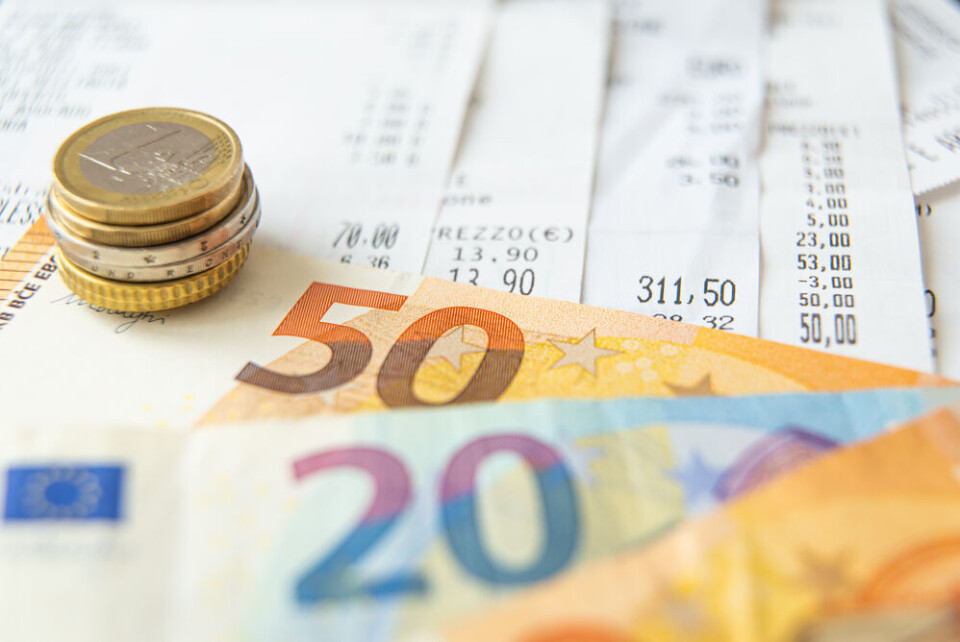-
Why your car insurance in France is expected to increase this year
Premiums are forecast to rise by four to six percent in 2026
-
Two Britons killed in avalanche in French Alps were with an instructor
French skier also died in the disaster at Val d’Isère on Friday February 13
-
British Airways launches bargain £2 flights to France (but there’s a catch)
The flights are only available to members of the airline’s Avios scheme who are redeeming loyalty points
French PM urges big business to return purchasing power to the public
Élisabeth Borne said that ‘everyone should be responsible’ and that she ‘would be paying attention to what large companies do’ with massive profits

Businesses that make big profits in France should “return buying power” to the people, Prime Minister Élisabeth Borne has said, as the cost of living continues to rise.
The PM also said that she “had not ruled out” a new corporation tax on bumper profits.
In an interview with Le Parisien, Ms Borne said that she would prefer for major enterprises to “drop their prices for the consumer to give them back their purchasing power”. She said that this option would be “more effective and impactful for people in France”.
She said: “No one will understand that businesses reap exceptionally-high profits even as people in France are worried about their purchasing power. In the current period, everyone must be responsible.”
Ms Borne added that she would be “paying attention to what [these companies] do”, and checking that those that have already made changes “respect them”.
Profit taxes and private jets
The question of whether to impose extra taxes on massive corporation profits has already been a topic of debate in parliament. Some MPs have called for it, while PS secretary Olivier Faure last week announced that he would suggest a party referendum to his Nupes (political party) partners.
Ms Borne also addressed the question of private jet use, after the issue became controversial last month. She did not confirm any taxes or sanctions for their use, but said: “Owners of private jets must, like everyone, participate in the reduction of greenhouse gas emissions.”
Read also:Stop lit-up advert screens and private jets, urge French campaigners
She said that it was important for “the most well-off” to show a good example. She added that she was set to “action a global and planned movement” on eco-friendly measures.
This is set to include a “green fund” of 1.5billion for local groups and authorities “to help them speed up the ecological transition”, she said. The funds could go towards the rehabilitation of public land to avoid urban sprawl, and the eco-friendly renovation of public buildings such as schools.
It could also “help bring nature into towns” or install “park and ride” car parks on the outskirts to limit traffic.
She added that the government would “not let energy prices explode” and would limit “rises”, even as energy prices continue to soar.
The current measure, known as the ‘price shield’ (bouclier tarifaire), is set to come to an end in its existing form at the end of the year. Ms Borne said that “we will maintain measures to limit the rises in energy prices. And we will impose specific measures to help the most vulnerable”.
Inflation down slightly but prices still high
Ms Borne’s comments come against a backdrop of rising prices and high inflation.
However, after some record rate rises, inflation was at 5.8% year-on-year in August, a drop of 0.3% compared to July’s rate of 6.1%, showed the latest figures from statistics bureau Insee.
This drop is “due to the slowdown in energy prices”, Insee said in a statement. Despite this, in August, food prices rose by 7.7% overall.
Similarly, the Indice des prix à la consommation harmonisé (HICP), which serves as a basis for comparison at the European level, rose by 6.5% over one year in August, compared with 6.8% in July. Over one month, the HICP rose by 0.4%, compared with 0.3% the previous month.
Related articles
Inflation, climate, pensions: a tough ‘rentrée’ for French government
Inflation: France will not see ‘double figure scenario’, says minister
Inflation in France expected to reach 6.8% by end of 2022
























